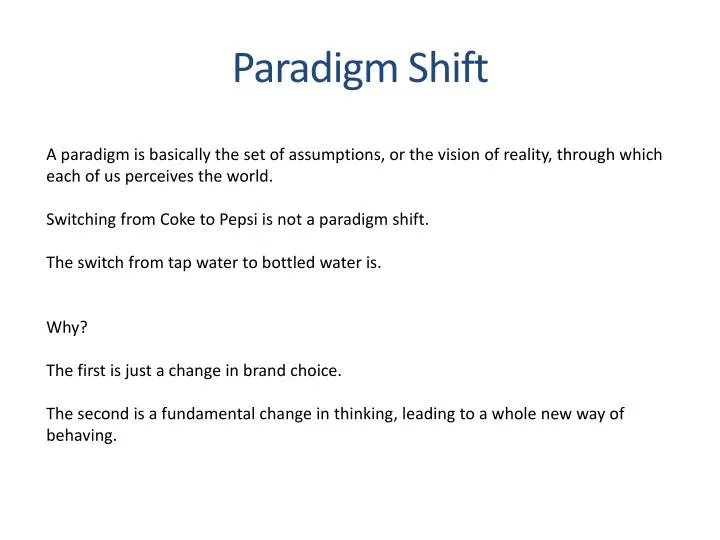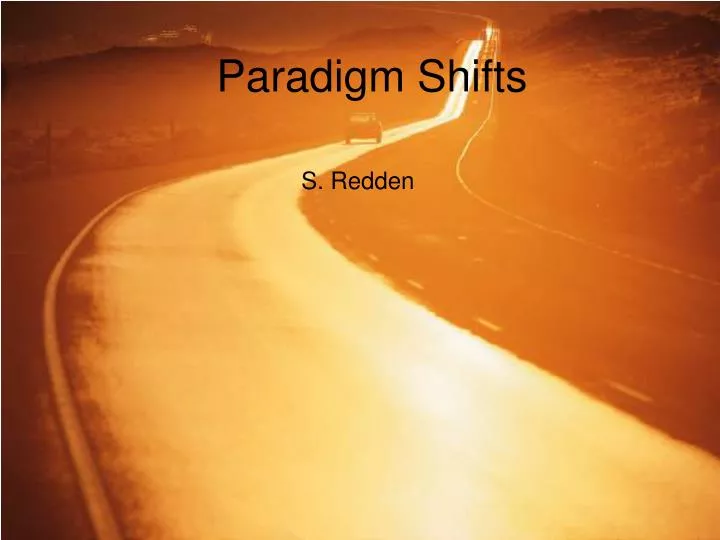


He suggested that scientific revolutions are not a matter of incremental advance they involve "paradigm shifts."
#Paradigm shift def series#
Inspired, in part, by the theories of psychologist Jean Piaget, who saw children's development as a series of discrete stages marked by periods of transition, Kuhn posited two kinds of scientific change: incremental developments in the course of what he called "normal science," and scientific revolutions that punctuate these more stable periods. One measure of his influence is the widespread use of the term "paradigm shift," which he introduced in articulating his views about how science changes over time. But his influence extended well beyond the academy: The book was widely read - and seeped into popular culture. Kuhn's 1962 book, The Structure of Scientific Revolutions, transformed the philosophy of science and changed the way many scientists think about their work.

He went on to become an important and broad-ranging thinker, and one of the most influential philosophers of the 20th century. Thomas Kuhn, the well-known physicist, philosopher and historian of science, was born 94 years ago today.


 0 kommentar(er)
0 kommentar(er)
